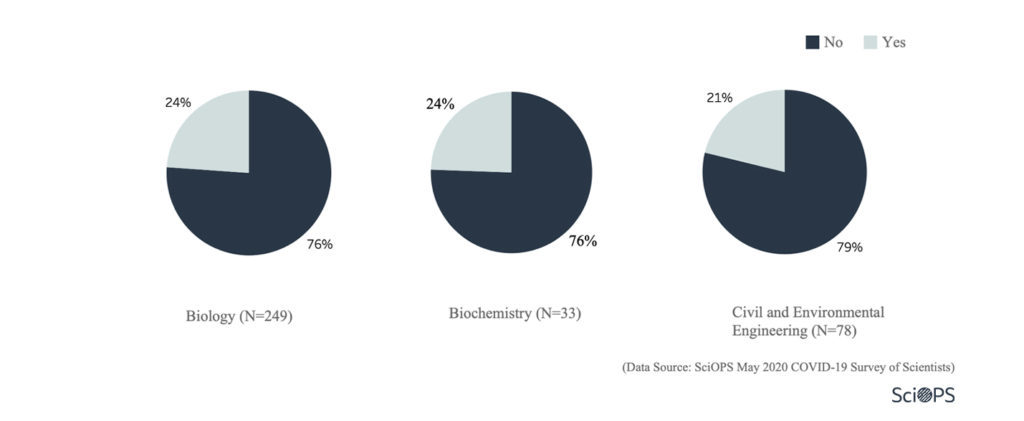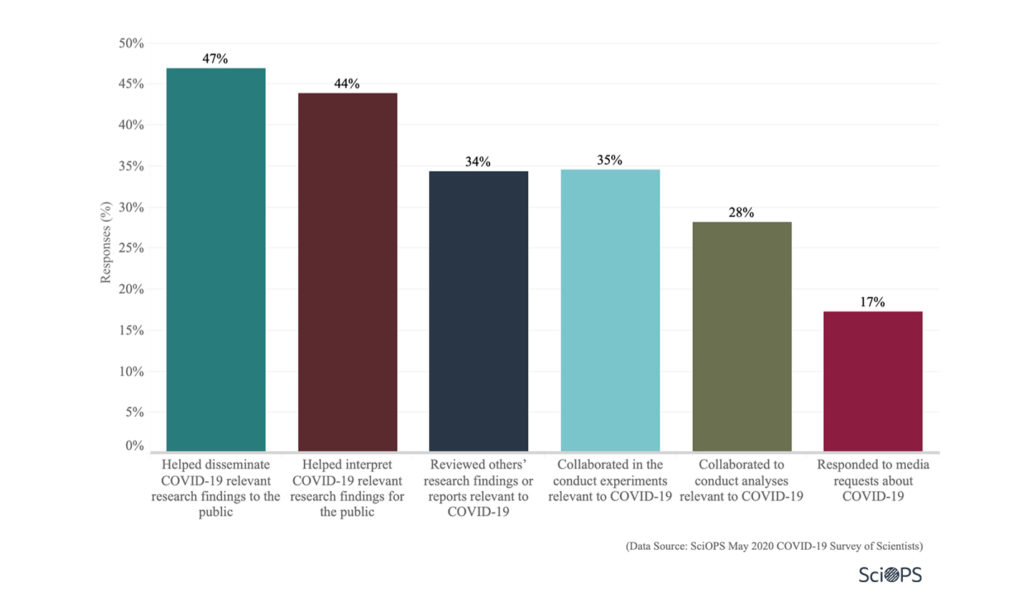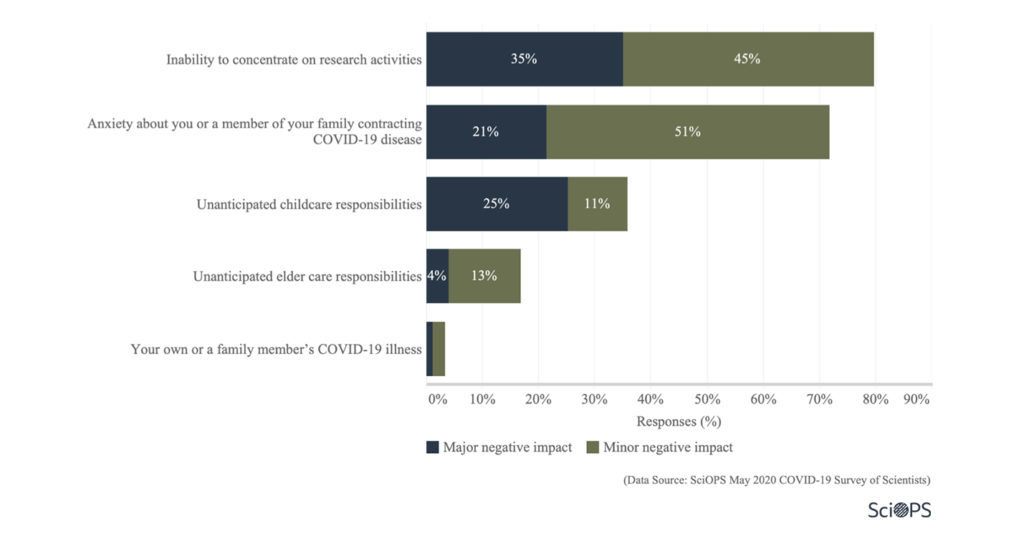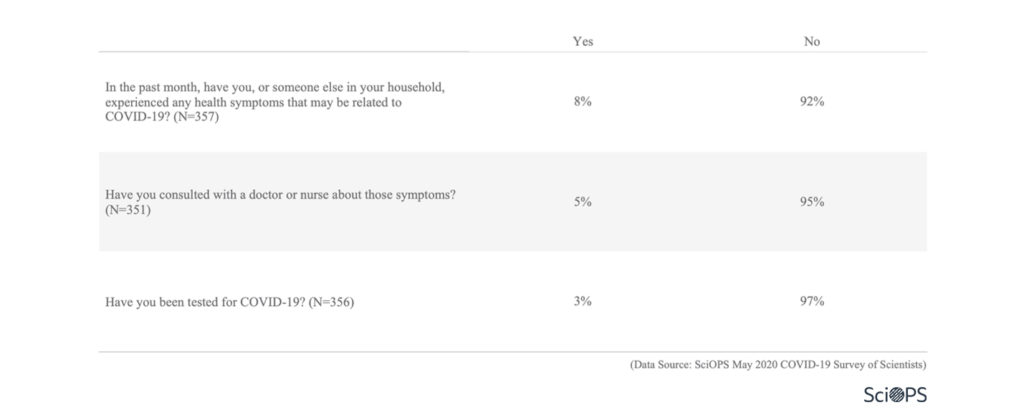COVID-19 I (2020): Personal Impacts
SciOPS conducted the initial COVID-19 survey of academic scientists in May 2020 to look at how COVID-19 policies have influenced academic scientists’ home-life, research, and views on policy.
Question

Finding
About 24% of biologists, 24% of the biochemists and 21% of engineers responded that they have personally contributed their expertise to help addressing the COVID-19 pandemic.
Question

Finding
Of those that responded that they contributed their expertise to help address the COVID-19 pandemic (N=75), approximately 91% helped disseminating or interpreting relevant research findings to the public and approximately 63% collaborated to conduct experiments or analyses relevant to COVID-19.
Other common contributions include reviewing others’ COVID-19 related research findings (34%) and responding to media requests (17%).
Question

Finding
The most important COVID-19 related home-life situations that negatively impacted research are that scientists were unable to concentrate on research activities (35%) and faced unexpected childcare responsibilities (25%).

Finding
About 8% of the scientists indicated that either they or someone in their family have been having health symptoms related to COVID-19.
- Of those, 5% have consulted with doctor or nurses about the symptoms and 3% have been tested for COVID-19.
Related
A more in depth analysis of this study can be found in our recent publication “COVID-19 and the academy: opinions and experiences of university-based scientists in the U.S.” in Humanities and Social Sciences Communications.
You can also read policy memos about this study and others on Arizona State University’s Center for Science, Technology and Environmental Policy Studies website.
Results from other sections of the SciOPS COVID-19 (2020) survey:
Survey Description
This national survey of scientists and engineers on the impacts of COVID-19 on academic research was conducted by the Center for Science, Technology and Environmental Policy Studies at Arizona State University. The project seeks to understand how COVID-19 and related policies impact academic research and funding, issues related to COVID-19 science communication, and regulation of COVID-19 research. The survey collected data on individual background and perceptions of impacts, behavior and expectations due to COVID-19. The population of the survey included tenured and tenure-track academic scientists from three fields (biology, civil and environmental engineering, and biochemistry) at 21 randomly selected universities classified as Carnegie designated research extensive (R1) universities in the United States.
The online survey was administered in English using Sawtooth Software®. 1,968 individuals were invited to participate in the survey via email with a series of personalized email follow-ups. The survey was opened on May 7 and closed on May 29, 2020. It resulted in 373 usable responses, with a response rate of 21% (AAPOR RR4). Responses are mostly from male respondents (63.5%), which is only slightly lower than the gender distribution in the population. The distribution of field also reflects the sampling frame, with 68.9% of respondents working in biology and genetics departments, 9.4% working in biochemistry departments and 21.7% working in civil and environmental engineering departments. The survey sample was weighted by gender and academic field. The measure of sampling error for questions answered by the full sample is plus or minus 5 percentage points.
